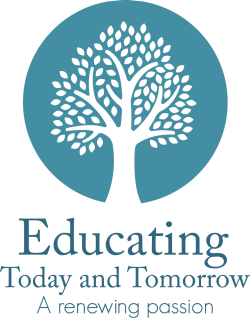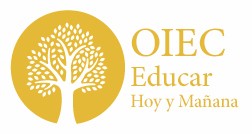World Congress "Educating Today and Tomorrow. A renewing passion"
18-21 November 2015, ROME
Fallow the Congress on:
Facebook
Twitter @VatiEducatio
This year, the Congregation for Catholic Education is celebrating the fiftieth anniversary of the Second Vatican Council’s Declaration Gravissimum Educationis and the twenty-fifth anniversary of the Apostolic Constitution Ex Corde Ecclesiae. As part of these celebrations, the Congregation aims to re-energize the Church’s commitment to education, by means of this World Congress. In the years following the Second Vatican Council, the Magisterium has repeatedly spoken of the importance of education, and has also invited the Christian community to play its part in education – particularly in the face of today’s obvious, and often critical, “educational emergency”. In fact, Catholic centres of education are not only “expertise providers”; by their very nature, they are also places of encounter, dialogue and mutual enrichment. They foster education for living, in openness to others, with a view to the common good.
Some recent documents of this Dicastery – especially the Instrumentum Laboris “Educating Today and Tomorrow: A Renewing Passion”, which was distributed with this Congress in mind – are ideal springboards for understanding and analyzing the various challenges faced by society, which although fractured is looking for firm reference-points. This is the context in which Catholic schools and universities pursue their specific goals. These goals, part of the new evangelization, suggest several themes for our attention. Firstly, we can re-invigorate our pastoral care in this area. Secondly, we can encourage ways to offer a holistic formation to all those involved in the various sectors of education – primary, secondary and tertiary.
At its heart, the Catholic educational mission aims to create an environment of mutual appreciation. This is based on certain values, which receive not just lip-service but are lived out on a daily basis, ensuring that social interactions are duly attentive to each student’s individual needs. Seen from this angle, teaching and learning are living witnesses of the apostolate and of service to the community. The cultural contexts may differ, and the study paths may vary; but some common elements, free from external pressures, loudly proclaim the respect due to every human person and his/her dignity, as well as to his/her uniqueness vis-à-vis mass-produced education. This latter, in fact, can sometimes weaken the individual’s gifts and talents, manipulating and limiting his/her critical capacities for judgement and analysis of reality.
We must be aware of the limits of human knowledge, and yet we cannot close our minds and hearts. In fact, commitment to teaching and the promotion of research are characterized by conscientious dedication to the truth. Respecting others’ ideas and being open to dialogue help develop a true capacity for discussion and co-operation, in service to one’s neighbour. This means investing not only in skills, but also in human qualities. In fact, learning is not merely the assimilation of facts, but offers various opportunities for self-education and dedication to one’s self-improvement. In this way, creativity is developed, and a desire is born for innovation, within the context of service learning.
Catholic schools and universities, who act in the name of the Universal Church, are there for others. They offer welcome, propose the faith, and offer pastoral accompaniment, while resolutely defending human dignity and diffusing knowledge. We have here a humanity that proclaims what it has, in remembering its past and offering promises for the future. Yet, this is done in dialogue with others, allowing for mutual enrichment as we contemplate that light of hope and faith that lies at the root of all education. Now more than ever, our multi-faceted world desires to be guided towards the supreme values of humanity, concerning the true, the good and the beautiful.
This is how Catholic education should look at things. It should encourage dialogue, even when schools and universities start to feel the heavy burdens of spiritual poverty, self-referential exclusiveness, the harmful spread of ideological viewpoints, and a certain lowering of the general level of culture. On the one hand, we must to respond to the needs of the economy and of society. On the other hand, we must also offer a holistic formation, developing a whole range of skills that enrich human beings: their imagination; their capacity to assume responsibility and to love the world; their capacity to promote justice and compassion; and their capacity to design goals that can change the future. Within such a rapidly changing society, the idea of a holistic education means reflecting continuously on how to renew this society, making it ever richer in quality, humanity and mercy.
Stages
For some time now, the Congregation for Catholic Education has considered organizing a World Congress, so as to answer the needs of our time, based on the principles described above. The Congress will have experts from all over the world, to allow for a global view of the contribution that the Christian community can make to education in various contexts. The Commission for Education of the Union of General Superiors of Religious Congregations UISG-USG collaborated in this preparation. In 2011, in response to a suggestion made by Pope Benedict XVI, the Congregation’s Plenary Assembly decided to celebrate appropriately the two anniversaries mentioned above. In June 2012, an international seminar took place, which was an important stage in preparing for these events. Following this meeting, the Plenary Assembly of the Congregation’s Members took place in February 2014.
The considerations that emerged during these meetings were reflected in the Instrumentum Laboris mentioned above, “Educating Today and Tomorrow: A Renewing Passion”. Following the Magisterium, the Instrumentum Laboris recalls the basic concepts and characteristics of the two documents whose anniversaries we are preparing to celebrate. Therefore, these 2015 anniversaries are a good opportunity for building on the most recent ideas and developing guidelines for the coming decades. In fact, the Instrumentum Laboris was prepared with these aims in mind. The document was addressed to Bishops’ Conferences, the Union of Superiors General, the International Union of Women Superiors General of Religious Congregations, to national and international associations of teachers, parents, students and former students, as well as school leaders and the various Christian communities – the aim was to ask them to reflect on the importance of Catholic education in the context of the new evangelization. The Instrumentum Laboris is useful in two ways: it can encourage the work of forming those who work in schools and universities, and keeping them up-to-date; and it can help in evaluating the pastoral care given in this area, which is so important for the Church.
This is the background to the Forum that will be held on 3 June 2015, at UNESCO, in Paris. This is aimed at celebrating the seventieth anniversary of UNESCO’s foundation, as well as the fiftieth anniversary of the Second Vatican Council’s Declaration Gravissimum Educationis – a witness to our shared aim of promoting education for all worldwide.
Aims of the Congress
- To offer schools and universities a place where they can dialogue and debate about the challenges that the “educational emergency” unavoidably provokes for our societies, educational systems and the Church;
- In light of ethical and religious principles, to draft a written analysis of the above-mentioned challenges and their repercussions for every field of education. All those involved in this important area will thus have a chance to make their contribution;
- In light of the Magisterium, to examine in greater depth the ideas that education is proposing and developing about humanity and society;
- To formulate useful suggestions and guidelines;
- To draft together, as members of the Church, a message that is meaningful, descriptive and challenging.
Organization
The World Congress takes place over four days, 18-21 November 2015, and is structured in three sessions. The opening and closing sessions are for everyone, and take place in the Paul VI Audience Hall in the Vatican.
The central session takes place on Thursday 19 and Friday 20 November 2015, at the Centro Mariapoli in Castel Gandolfo. (At the same time, OIEC, the International Office for Catholic Education, will be busy holding its general assembly at the Auditorium Conciliazione in Rome.)
The central session is, in turn, subdivided into two sub-sessions: one for universities and another for schools. Each sub-session will have its own speeches, personal interventions and roundtables, with experts from all over the world.
The opening session begins in the afternoon of Wednesday 18 November, with a greeting from the Cardinal Prefect of the Congregation for Catholic Education and a speech from the Cardinal Prefect of the Congregation for Institutes of Consecrated Life and Societies of Apostolic Life. There follow interventions from experts who have given their time and talent for the success of education, describing their own personal experiences. They will offer a general overview of today’s new scenarios and challenges, using as their starting-point the many noteworthy responses to the questions posed by the Instrumentum Laboris “Educating Today and Tomorrow: A Renewing Passion”.
In the central session of 18-19 November 2015, the speeches will hinge on three major themes: the identity and mission of Catholic institutions, the subjects of education, and the formation of formators.
At the Centro Mariapoli in Castel Gandolfo, in the afternoon of Friday 20 November 2015, the representatives of both sectors – schools and universities – will meet to discuss the challenges of today and tomorrow. They will offer some suggestions from two perspectives: the fundamental rights to education and to freedom of choice in education; and the many religious charisms that make a profound contribution to the richness of the Church’s mission.
Saturday 21 November 2015, all participants (both those meeting in Castel Gandolfo and those involved in the conference at the Auditorium Conciliazione) will gather for the final session, at which is foreseen the presence of the Holy Father. Those involved in the Congress will be joined also by representatives of Catholic schools and universities in Rome. The aim of this morning session in common is to draw conclusions from what has emerged during the Congress, looking towards the future with hope and trust, encouraged by the words of Pope Francis.



